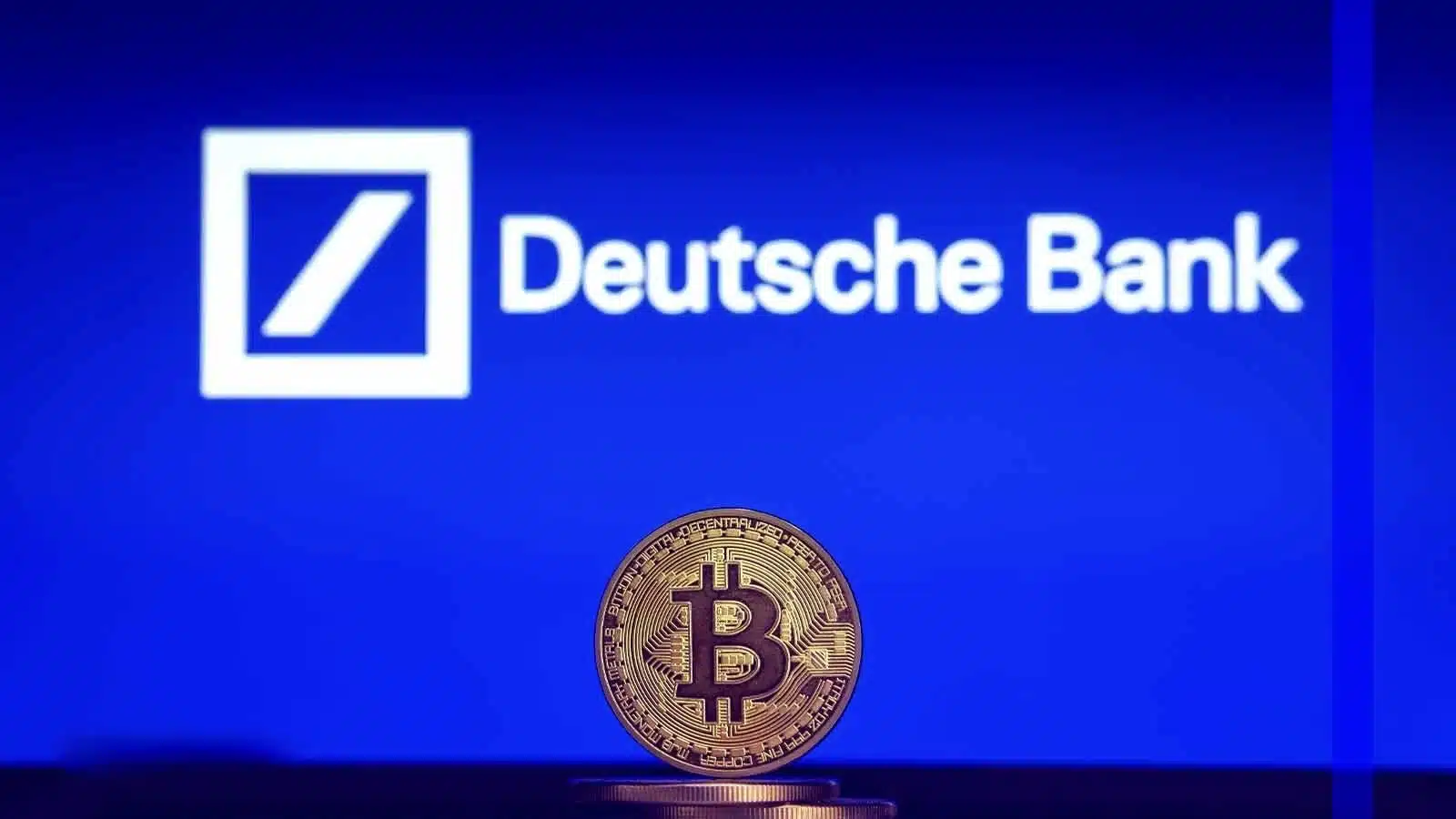- Bitcoin could become a central bank reserve asset by 2030.
- Deutsche Bank sees Bitcoin complementing gold in future financial portfolios.
- Scarcity and inflation protection drive Bitcoin’s rise as reserve asset.
Deutsche Bank has made a bold prediction, stating that Bitcoin could be added to central bank balance sheets by 2030. This forecast highlights a major shift in global finance, with Bitcoin positioning itself not as a competitor to gold but as a valuable complement.
The bank suggests that Bitcoin could become a key part of central bank reserves, diversifying financial portfolios and acting as a hedge against inflation.
The report underscores Bitcoin’s supply scarcity as a major factor driving this trend. With 95% of Bitcoin’s total supply already in circulation, the cryptocurrency’s limited availability makes it a strong contender for reserve diversification. As more countries and institutions seek assets that protect against inflation and economic shocks, Bitcoin’s role as a store of value continues to grow.
Deutsche Bank compares Bitcoin’s potential rise to that of gold. Gold, once met with skepticism, is now an integral part of the global financial system. Similarly, the bank expects Bitcoin’s volatility to decrease over time as adoption and liquidity increase, positioning it as a stable and recognized asset.
Also Read: Former Fox Business Journalist: Here’s a New Way for XRP Holders to Earn 8% on Their Holding
Bitcoin’s Rising Role in Central Bank Reserves
Looking toward 2030, Bitcoin’s role in central bank reserves could redefine financial portfolios globally. With its digital nature and inherent scarcity, Bitcoin offers a unique alternative to traditional reserve assets. Its increasing recognition as a hedge against inflation further strengthens its case for adoption by national institutions.
As central banks and institutional investors expand their portfolios, the idea of Bitcoin complementing gold in reserves is gaining traction. Deutsche Bank’s report reflects the growing trend of countries diversifying their reserves with digital assets.
As Bitcoin matures, it could eventually hold a place alongside gold in global financial systems, signaling a monumental shift in how national wealth is stored and managed.
This evolving perspective on Bitcoin’s role in central bank reserves is reshaping the future of global finance. As adoption continues to grow, Bitcoin may become an essential asset in the reserve portfolios of sovereign nations.
Also Read: Ripple CEO Announces Marriage, Ignites XRP Community: Details
